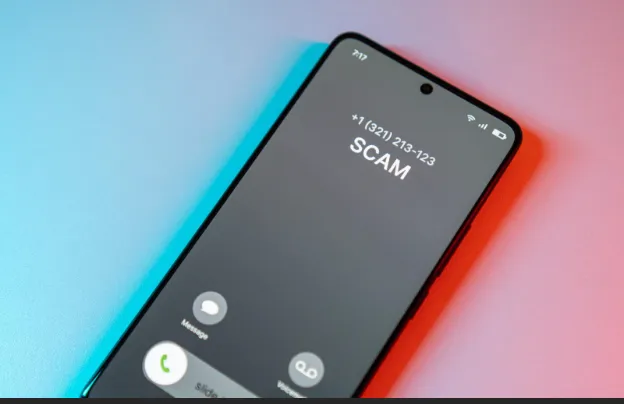
Is That IRS Email Real? How to Spot a Tax Scam in 2025
Is That IRS Email Real? How to Spot a Tax Scam in 2025
Let’s be real: Tax season is already stressful enough.
Now toss in a flood of scam emails, fake texts, and social media DMs from phony "IRS agents" — and suddenly, you’re not just balancing your books… you’re dodging digital landmines.
As a small business owner, staying scam-savvy in 2025 isn’t optional — it’s critical.
So let’s break down what’s real, what’s fake, and what you can do to protect your business* (and your bank account).
First Thing’s First: The IRS Will Never Email or Text You Out of the Blue
Let’s put this myth to rest right now:
The IRS does NOT contact taxpayers through email, text, or social media to request personal or financial information.
If you get a message saying you owe money, that your refund is being held, or that you’ll be arrested if you don’t act immediately — delete it. That’s not the IRS; that’s a scammer fishing for your data, your money, or both.
PS: If someone from the ‘IRS’ texts you asking for payment in Target gift cards or Bitcoin, it’s not a red flag... it’s a five-alarm fire.
⚠️ IRS Tax Scam Red Flags to Watch for in 2025
Here’s what scammers are using right now to try and trick small business owners:
❌ Emails claiming to be from the IRS — with subject lines like “Final Notice” or “Refund Notification”
❌ Texts or DMs asking you to click a link or confirm personal info
❌ Calls from aggressive ‘agents’ threatening arrest, lawsuits, or license suspension
❌ Demands for odd payment methods, like gift cards, wire transfers, or cryptocurrency
These tactics are designed to scare you into quick action — but don’t take the bait. Real government agencies don’t threaten arrest over unpaid taxes in an unsolicited call.
Any ‘log in immediately’ messages are utter crap.
✅ What the Real IRS Actually Does
The real IRS operates on a very specific communication model:
✅ They send physical mail first. Always.
✅ They do not use email or social media to initiate contact.
✅ They only call or visit in-person if you’re already in an ongoing situation and they’ve notified you through the mail.
✅ They never demand payment on the spot — and they never accept payments via gift cards or crypto.
So if you haven’t received a letter in the mail? That “urgent IRS email” isn’t just fake; it’s dangerous. Snail mail first, always.
5 Ways to Protect Yourself From IRS Tax Scams in 2025
🧠 Here’s how to keep your personal info and business assets safe this season:
File Your Taxes Early
Identity thieves love to file fake returns using stolen info. Beat them to the punch by submitting yours early.
Enable Multi-Factor Authentication
Your accounting software (think QuickBooks, Gusto, etc.) should be locked down with MFA. It’s a simple step that adds a massive layer of protection.
Never Click Suspicious Links or Attachments
Even if the message looks like it’s from the IRS, DO NOT CLICK. Instead, forward the email to [email protected] and then delete that spam message.
Verify Your Tax Pro
Don’t trust your taxes to your cousin’s friend who “knows someone at the IRS.” Work with a licensed, credentialed professional who’s legally allowed to represent you.
Educate Your Team
Your virtual assistant, bookkeeper, or social media manager might also get these scam messages. Make sure they know what real IRS contact looks like.
💬 What To Do If You Think You’ve Been Targeted
If you’ve received a sketchy email or call from someone claiming to be the IRS:
📩 Don’t respond.
📤 Forward phishing emails to: [email protected]
📞 Report scam calls to the Treasury Inspector General: tigta.gov
🔐 Monitor your credit and accounts for suspicious activity
And please — don’t be embarrassed. These scams are very convincing. The smart move is catching it early and taking action.
Look, running a business already comes with enough surprises. You don’t need “Agent Jim from Tax Enforcement HQ” crashing your inbox with a side of panic.
If something feels off — it probably is.
And if you’re not sure? Reach out. I’ve walked plenty of small biz owners through these scenarios, and I’m happy to help you navigate yours.
Let’s keep your money (and your peace of mind) right where they belong.

Pam Prior
Author, Virtual CFO, and Finance Coach
“Your First CFO: The Accounting Cure for Small Business Owners” on AMAZON
“Founder to Exit: A CFO’s Blueprint for Small Business Owners” on AMAZON
